DS Automobiles DS 7 vs Volvo V60 – Which one offers the better deal?
Both models have their strengths – but which one suits you more?
Compare performance, efficiency, price and space directly: DS Automobiles DS 7 or Volvo V60?
Costs and Efficiency: Looking at overall running costs, both models reveal some interesting differences in everyday economy.
Volvo V60 has a barely noticeable advantage in terms of price – it starts at 41600 £, while the DS Automobiles DS 7 costs 41900 £. That’s a price difference of around 232 £.
Fuel consumption also shows a difference: DS Automobiles DS 7 manages with 1.30 L and is therefore clearly more efficient than the Volvo V60 with 2.40 L. The difference is about 1.10 L per 100 km.
As for range, the Volvo V60 performs distinct better – achieving up to 92 km, about 27 km more than the DS Automobiles DS 7.
Engine and Performance: Power, torque and acceleration say a lot about how a car feels on the road. This is where you see which model delivers more driving dynamics.
When it comes to engine power, the Volvo V60 has a distinct edge – offering 455 HP compared to 360 HP. That’s roughly 95 HP more horsepower.
In acceleration from 0 to 100 km/h, the Volvo V60 is evident quicker – completing the sprint in 4.60 s, while the DS Automobiles DS 7 takes 5.70 s. That’s about 1.10 s faster.
In terms of top speed, the DS Automobiles DS 7 performs clearly perceptible better – reaching 235 km/h, while the Volvo V60 tops out at 180 km/h. The difference is around 55 km/h.
There’s also a difference in torque: Volvo V60 pulls noticeable stronger with 709 Nm compared to 520 Nm. That’s about 189 Nm difference.
Space and Everyday Use: Beyond pure performance, interior space and usability matter most in daily life. This is where you see which car is more practical and versatile.
Both vehicles offer seating for 5 people.
In curb weight, DS Automobiles DS 7 is hardly perceptible lighter – 1651 kg compared to 1734 kg. The difference is around 83 kg.
In terms of boot space, the DS Automobiles DS 7 offers hardly perceptible more room – 555 L compared to 519 L. That’s a difference of about 36 L.
In maximum load capacity, the DS Automobiles DS 7 performs somewhat better – up to 1750 L, which is about 319 L more than the Volvo V60.
When it comes to payload, Volvo V60 to a small extent takes the win – 506 kg compared to 424 kg. That’s a difference of about 82 kg.
Who comes out on top?
Overall, the DS Automobiles DS 7 shows itself to be wins by a narrow margin and secures the title of DriveDuel Champion.
It convinces with the more balanced overall package and proves to be the more versatile choice for everyday use.
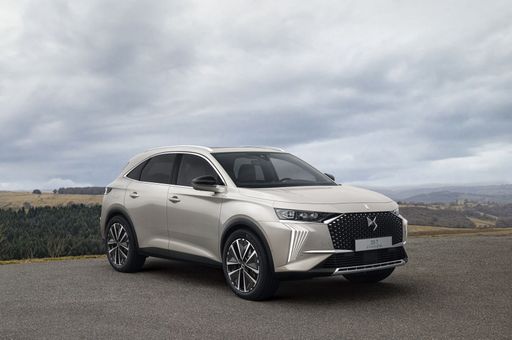
DS Automobiles DS 7
DS Automobiles DS 7
The DS 7 stands out with its striking design and luxurious comfort, making it a true embodiment of French elegance in the SUV segment. Inside, the cabin showcases a blend of high-quality materials and innovative features that cater to both driver and passenger needs. With its impressive road presence and refined driving dynamics, the DS 7 promises a captivating driving experience that doesn't compromise on style.
details @ media.stellantis.com
@ media.stellantis.com
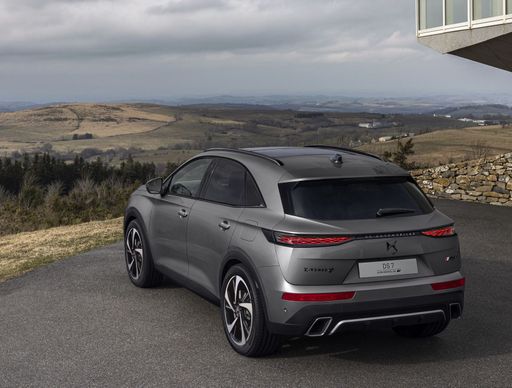 @ media.stellantis.com
@ media.stellantis.com
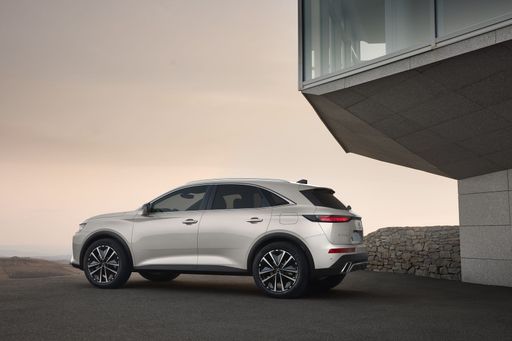 @ media.stellantis.com
@ media.stellantis.com
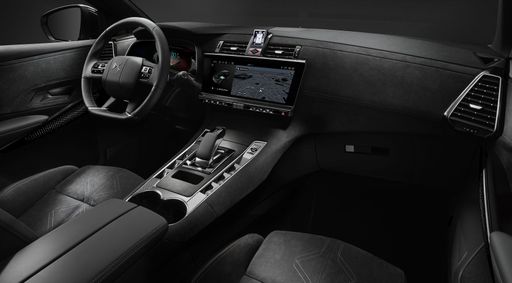 @ media.stellantis.com
@ media.stellantis.com
Volvo V60
The Volvo V60 exudes a sense of refined elegance with its sleek design and smooth contours, making it a standout in the estate car category. Inside, it offers a harmonious blend of luxury and functionality with premium materials and state-of-the-art technology, ensuring a comfortable driving experience. Its performance on the road is impressive, combining efficient handling with a powerful yet quiet ride, making it a favourite for those who appreciate both style and substance.
details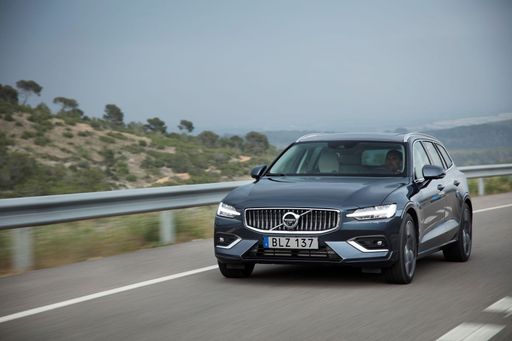 @ media.volvocars.com
@ media.volvocars.com
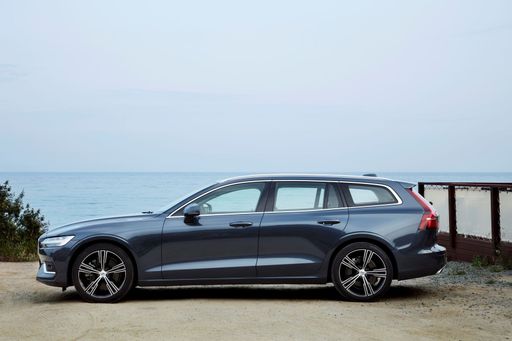 @ media.volvocars.com
@ media.volvocars.com
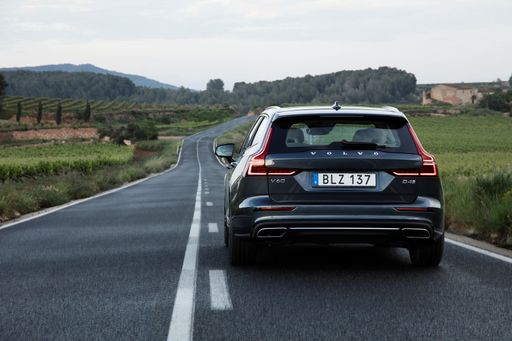 @ media.volvocars.com
@ media.volvocars.com
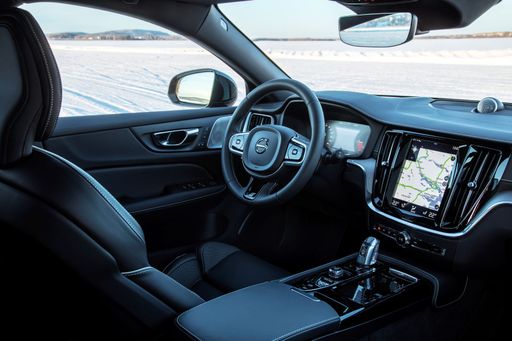 @ media.volvocars.com
@ media.volvocars.com
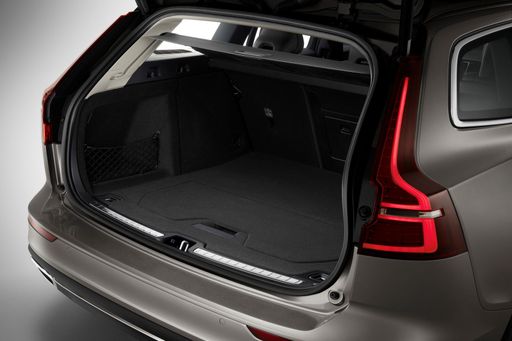 @ media.volvocars.com
@ media.volvocars.com

|

|
|
|
|
Costs and Consumption |
|
|---|---|
|
Price
41900 - 59300 £
|
Price
41600 - 64200 £
|
|
Consumption L/100km
1.3 - 5.5 L
|
Consumption L/100km
2.4 - 6.2 L
|
|
Consumption kWh/100km
-
|
Consumption kWh/100km
-
|
|
Electric Range
50 - 65 km
|
Electric Range
92 km
|
|
Battery Capacity
12.90 kWh
|
Battery Capacity
14.70 kWh
|
|
co2
30 - 145 g/km
|
co2
54 - 140 g/km
|
|
Fuel tank capacity
43 - 55 L
|
Fuel tank capacity
60 L
|
Dimensions and Body |
|
|---|---|
|
Body Type
SUV
|
Body Type
Estate
|
|
Seats
5
|
Seats
5
|
|
Doors
5
|
Doors
5
|
|
Curb weight
1651 - 2002 kg
|
Curb weight
1734 - 2064 kg
|
|
Trunk capacity
555 L
|
Trunk capacity
519 L
|
|
Length
4593 mm
|
Length
4778 mm
|
|
Width
1891 mm
|
Width
1850 mm
|
|
Height
1625 mm
|
Height
1432 mm
|
|
Max trunk capacity
1750 L
|
Max trunk capacity
1431 L
|
|
Payload
398 - 424 kg
|
Payload
466 - 506 kg
|
Engine and Performance |
|
|---|---|
|
Engine Type
Diesel, Plugin Hybrid
|
Engine Type
Petrol MHEV, Plugin Hybrid
|
|
Transmission
Automatic
|
Transmission
Automatic
|
|
Transmission Detail
Automatic Gearbox
|
Transmission Detail
Dual-Clutch Automatic, Automatic Gearbox
|
|
Drive Type
Front-Wheel Drive, All-Wheel Drive
|
Drive Type
Front-Wheel Drive, All-Wheel Drive
|
|
Power HP
130 - 360 HP
|
Power HP
197 - 455 HP
|
|
Acceleration 0-100km/h
5.7 - 11.9 s
|
Acceleration 0-100km/h
4.6 - 7.6 s
|
|
Max Speed
195 - 235 km/h
|
Max Speed
180 km/h
|
|
Torque
300 - 520 Nm
|
Torque
300 - 709 Nm
|
|
Number of Cylinders
4
|
Number of Cylinders
4
|
|
Power kW
96 - 265 kW
|
Power kW
145 - 335 kW
|
|
Engine capacity
1499 - 1598 cm3
|
Engine capacity
1969 cm3
|
General |
|
|---|---|
|
Model Year
2024 - 2025
|
Model Year
2024 - 2025
|
|
CO2 Efficiency Class
E, B
|
CO2 Efficiency Class
E, B
|
|
Brand
DS Automobiles
|
Brand
Volvo
|
What drive types are available for the DS Automobiles DS 7?
The DS Automobiles DS 7 is available as Front-Wheel Drive or All-Wheel Drive.
The prices and data displayed are estimates based on German list prices and may vary by country. This information is not legally binding.
